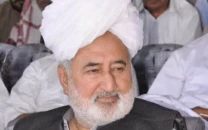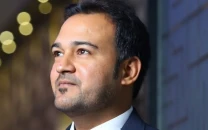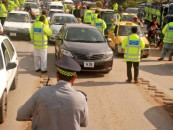December 27. A metaphor for sacrifice for the country and the people
Shaheed Mohtarma Benazir Bhutto stands as a singular leader who fought against two military dictatorships.

Some moments in a nation's history are remembered for centuries. December 27, 2007, stands as a deeply tragic day in our national history, marked by the martyrdom of Mohtarma Benazir Bhutto in a brutal act of terrorism. This date has become a symbol of sacrifice for the country and its people.
When Shaheed Mohtarma Benazir Bhutto decided to return to her homeland after eight years in exile, her friends and relatives strongly urged her not to, warning of the dangerous situation and threats to her life.
Several foreign governments shared intelligence reports with her, and Pakistan's intelligence agencies also conveyed that her return was fraught with peril.
Party leaders and those in her close circle advised her against returning to Pakistan until the very last moment.
Shaheed Bibi was fully aware of the risks and was convinced that certain forces were determined to eliminate her.
Yet, she remained resolute in her decision. Before returning, she wrote her last will and testament, specifying her final resting place within the grounds of Shaheed Bhutto's mausoleum.
To those urging her to reconsider, she had a single, unwavering response: Pakistan's security was at stake.
"If I do not return at this critical juncture," she would say, "history will remember us as cowards. I cannot abandon my country and my people in their time of need."
She often reiterated her belief: "We are a people of reasoning, of ideas and emotions. We know how to live, and we know how to die." Very few individuals in history have embraced death with such courage and conviction.
When Shaheed Mohtarma Benazir Bhutto returned to Pakistan on October 18, 2007, the entire nation seemed to converge at Karachi airport to welcome her.
A sea of people gathered in support of her vision for a peaceful democratic revolution, echoing her belief that Pakistan's survival lay in democracy. The overwhelming support unsettled the forces opposed to Pakistan and its people.
On the same day, these hostile forces struck their first blow against Shaheed Bibi through a brutal terrorist attack on Shahra-e-Faisal near Karsaz, Karachi.
Although she survived the devastating bomb blasts, more than 200 of her supporters sacrificed their lives for the cause of Pakistan's survival and the restoration of democracy.
The Karsaz tragedy made it evident that Shaheed Bibi’s life was under constant threat from those opposing her mission.
On October 19, during a press conference at Bilawal House in Karachi, she was asked if she would continue her campaign despite the threats.
Her resolute reply was: "Those forces want me to abandon my campaign and leave. They do not want true democracy to be restored in the country. But if democracy is not restored, the dangers to Pakistan will only increase. I will stay with my people."
Upon her return to Pakistan, Shaheed Mohtarma Benazir Bhutto brought with her a manuscript she had written, later published under the title Reconciliation. In one poignant passage, she wrote:
"I had endured the torment of my father's arrest, imprisonment, and murder and knew that such wounds of the soul never truly heal. I was willing to do anything to spare my children the pain I had suffered from my father’s death, but this was the one thing I could not do."
In her book Reconciliation, Shaheed Mohtarma Benazir Bhutto explains why she returned to her homeland despite being fully aware of the threats to her life.
She wrote, "Pakistan is in danger of Talibanization as well as balkanization." She further described the perilous state of the nation at that time, saying, "Pakistan is a bundle of dry fuel, which can catch fire very quickly."
Recognising the grave dangers posed by the growing power of extremist and separatist groups, Shaheed Bibi sacrificed her life to save Pakistan.
Throughout her career, she bravely engaged in politics during some of the most critical and dangerous periods in the country's history, enduring immense personal suffering for the sake of her people.
Shaheed Mohtarma Benazir Bhutto stands as a singular leader who fought against two military dictatorships—those of General Zia-ul-Haq and General Pervez Musharraf.
By restoring democracy, she countered the threats posed by extremist and separatist forces that endangered the nation's security. Under authoritarian regimes, Pakistan faced significant challenges: the country was divided during the dictatorships of General Ayub Khan and General Yahya Khan, while the regimes of Zia-ul-Haq and Pervez Musharraf embroiled Pakistan in global power struggles. These wars crushed democratic and federalist forces, allowing extremist and separatist movements to gain strength.
On April 10, 1986, when Shaheed Bibi first returned to Pakistan, and again on October 18, 2007, the country's security was in jeopardy.
In 2007, religious and sectarian extremist forces dominated politics through terrorism, and the government's writ had eroded in regions like Swat and the tribal areas, where even the Pakistani flag could not be raised.
Despite these risks, Shaheed Bibi returned to her homeland, risking her life to confront these challenges head-on.
If she had not returned during those critical times, the situation in Pakistan today might have been unimaginable.
The democracy we see in Pakistan now, the weakening of extremist, fascist, and separatist forces, and the strengthening of federal democratic ideals—symbolised by milestones like the 18th and 26th Constitutional Amendments—are all testaments to Shaheed Bibi's unwavering commitment and ultimate sacrifice.



















COMMENTS
Comments are moderated and generally will be posted if they are on-topic and not abusive.
For more information, please see our Comments FAQ